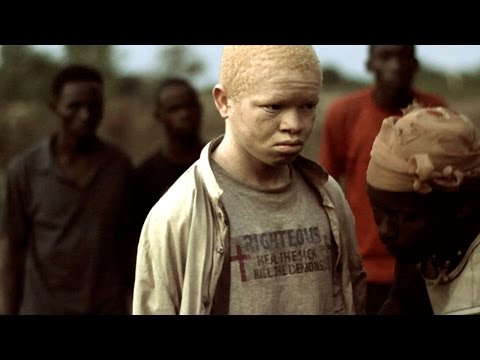Debuting at last year’s Cannes Film Festival, South Africa’s “Hear Me Move” is the nation’s first dance offering and is already garnering the attention of dance enthusiasts and film festivals around the world.
SEE ALSO: DOCUMENTARY SPOTLIGHTS SOUTH AFRICA’S NEW MUSIC GENRE TOWNSHIP TECH
Dance movies have always been popular internationally, with films, such as “Stomp the Yard” “Battle of the Year: The Dream Team,” coming out from the United States most recently.
Inspired by those American films, the creators of “Hear Me Move” also wanted to showcase all that South Africa has to offer, with its vibrant music and arts scene.
Scriptwriter Fidel Namisi, though, made it very clear to BBC News Africa that “Hear Me Move” isn’t a “Step Up Revolution” remake that just happens to be based in South Africa.
“We push story much more [in our film] and…we tried to keep the dance very South African, so you’ll see specific dance forms and dance genres that are really South African. So it is 90 percent South African and about 10 percent hip-hop.
“We [still] wanted to give a nod to hip-hop, [though] because the hip-hop community is big and present and it is world-class. You have hip-hop world champions in South Africa.
“But there is so much more than hip-hop here and we wanted to show it.”
Adding to what it is that makes “Hear Me Move” stand above the fray, Producer Wandile Molebatsi says that unlike other dance movies that tend to feature actors who are trained for their respective films to dance, all of the dancers involved in “Hear Me Move” are dancers first. The majority of them also belong to popular dance crews in South Africa.
“We were able to get all the hottest dance crews. We were able to get the Reptiles, Freeze Frame, Revolution; we got to get everyone to be a part of the film.
“And what was great about it is [the dancers] didn’t have to feel like they were being somebody else. They literally got to be themselves on camera.
“You can feel it and you can see it in cinema.”
Watch the trailer “Hear Me Move” here:
SEE ALSO: ARE SOUTH AFRICA’S FASHION GANGS ANY DIFFERENT THAN URBAN AMERICA’S FLOSSY RAP CULTURE?











